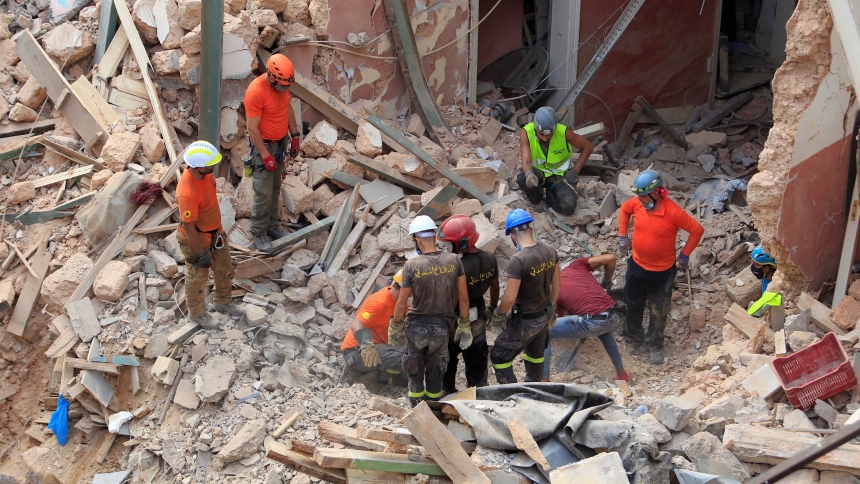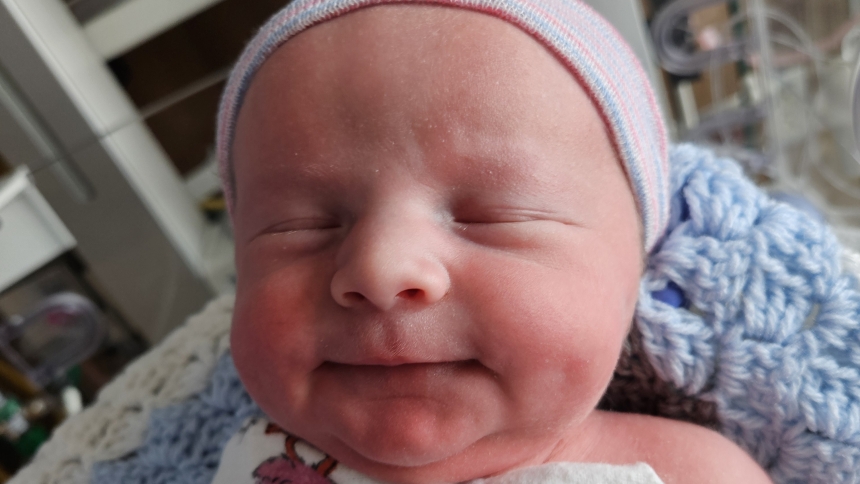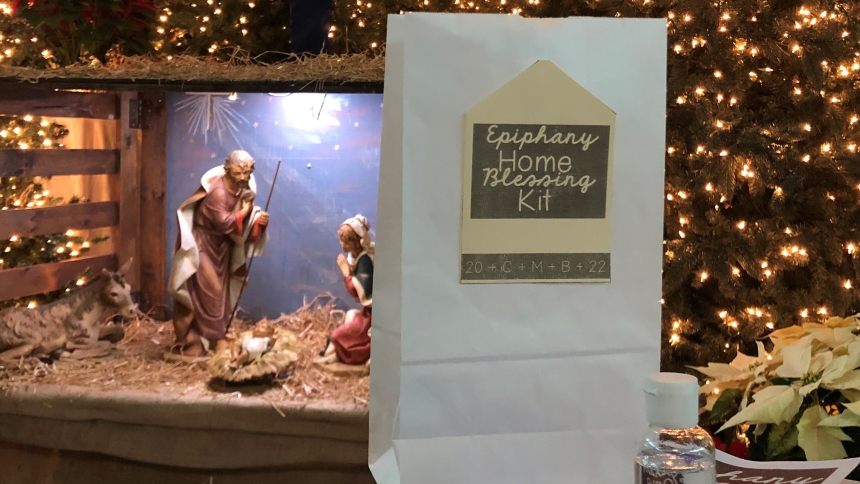
(OSV News) - Lebanon's Catholic clergy celebrated a commemorative Mass and held a vigil in the Lebanese capital, Beirut, remembering those who perished five years earlier, on Aug. 4, 2020, in the catastrophic Beirut port explosion.
Pope Leo XIV also remembered the victims and comforted their loved ones in a special message.
Lebanese Maronite Archbishop Paul Abdel Sater of Beirut, presided over a solemn memorial Mass at St. George's Cathedral in downtown Beirut.
"Our beloved martyrs and victims of the Aug. 4, 2020 explosion, you remain in us, and we remain faithful. We will not forget, we will not tire, and we will not remain silent, for your sake, for our sake, and for the sake of our homeland, Lebanon," he said. "The blood of the innocent cries out to God for justice and he hears it."
A message of comfort came from Pope Leo XIV. Christ's tears "are joined with ours in the face of loss and suffering. Death does not and will never have the last word," he said, conveying his affection and that of the whole church to the Lebanese people.
Pope Leo "wishes to once again express his compassion to all those whose hearts are wounded or who have lost everything due to this catastrophe. The beloved and suffering Lebanon remains at the center of his prayers," the message read, as reported by Vatican News.
The apostolic nuncio to Lebanon, Archbishop Paolo Borgia, shared the pope's message during an evening prayer vigil on Aug. 3 that also saw testimonies and the planting of 75 trees bearing the names of the blast victims.
"The families of the victims need justice and truth about what happened," Archbishop Borgia said. "These are deaths that still have no explanation, and this weighs heavily on the whole country."
The 2020 explosion, considered one of the largest non-nuclear blasts in modern history, was set off by 2,750 tons of improperly stored ammonium nitrate in the port's silos. It killed more than 200 people, injured some 7,000 others and displaced more than 300,000. Many of those killed were Christians due to the nearby proximity to the port of mainly Christian neighborhoods.
Lebanon's Cardinal Bechara Rai, patriarch of the Maronite Catholic Church, called the horrific blast a "crime against humanity." He has led vigorous calls for truth and justice over subsequent years for the blast victims and their families from Lebanon's authorities. The tragedy has remained a national trauma, as closure has been elusive for people frustrated by years of stalled investigations and unresolved questions of accountability.
The probe into the blast has been repeatedly obstructed by powerful Lebanese political factions, including Hezbollah and its Shiite ally, the Amal movement, with lead investigating judge Tarek Bitar facing numerous suspensions before ultimately resuming the case earlier this year, observers note. The tragedy, they said, has exposed the deep-rooted corruption and negligence present in Lebanon's dysfunctional political and judicial systems for some time.
A change has come, some hope, with Lebanon's new government, headed by President Joseph Aoun, the country's former army commander, elected to office on Jan. 9, thus ending a two-year political deadlock. Aoun promised "the full truth" would be uncovered behind the blast, "regardless of the obstacles or how high the rank of those involved."
"There is no end to this national wound except by revealing the truth and holding all those responsible, whoever they may be, accountable before the judiciary," the new prime minister Nawaf Salam affirmed.
Father Gabriel Khairallah's St. Joseph Catholic Church was badly damaged in the explosion. The pontifical charity Aid to the Church in Need provided repairs. "It was a miracle that it (the roof) did not fall on our heads. Some people were praying inside the church. It's a miracle that they are alive," he told Current News television at the time.
Syriac Catholic Bishop Jules Boutros of Antioch told ACN that the port explosion "was the most difficult thing that I have experienced in the past five years. It was shocking, people couldn't believe what had happened in just a single moment."
For Sarah, who only gave her first name and lost a relative in the blast, the absence of justice and accountability after five years has been excruciating. "This is the first crime in Lebanon alone that really touched the population as a whole, not only the families affected," she said, declining to provide her last name for fear of reprisal.
"This is a crime against humanity and against the population in Lebanon, because they knew what ammonium nitrate could do to this country," Sarah told The Media Line website.
Yet, Bishop Boutros said it's important to keep hope alive that justice will prevail.
"We are passing through dark nights, and that's where we are called to shine. The light that we are holding is the light of Jesus Christ. It's not our light, our politics, our culture, our geography, our history, our knowledge or our wisdom. It's the wisdom of the cross and it's the light of the resurrection through which Jesus has overcome evil."
Caption: Members of a rescue team search through rubble of destroyed buildings in Beirut's port area Sept. 4, 2020, one month after a massive explosion. The blast killed more than 200 people, injured some 7,000 others and displaced more than 300,000. (OSV News photo/Aziz Taher, Reuters)


